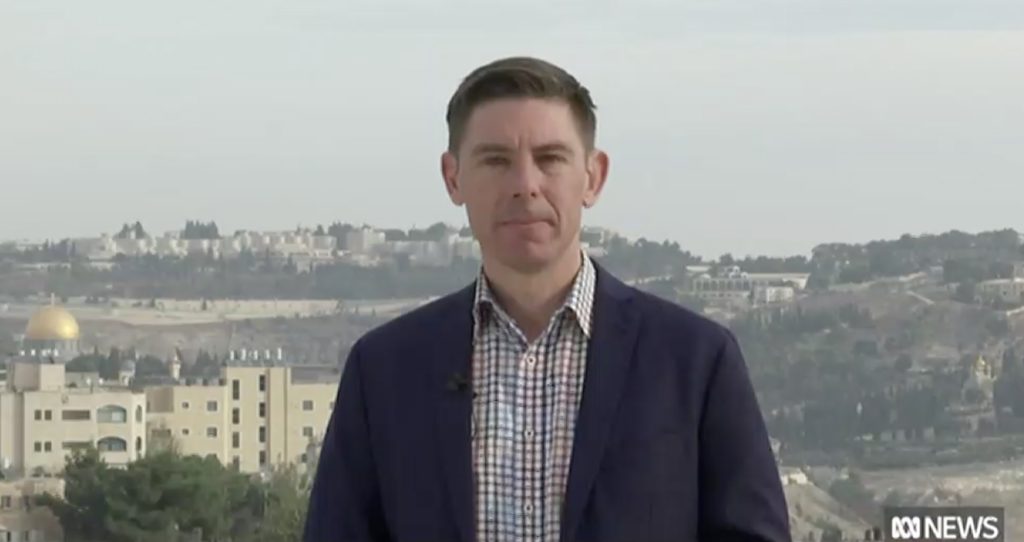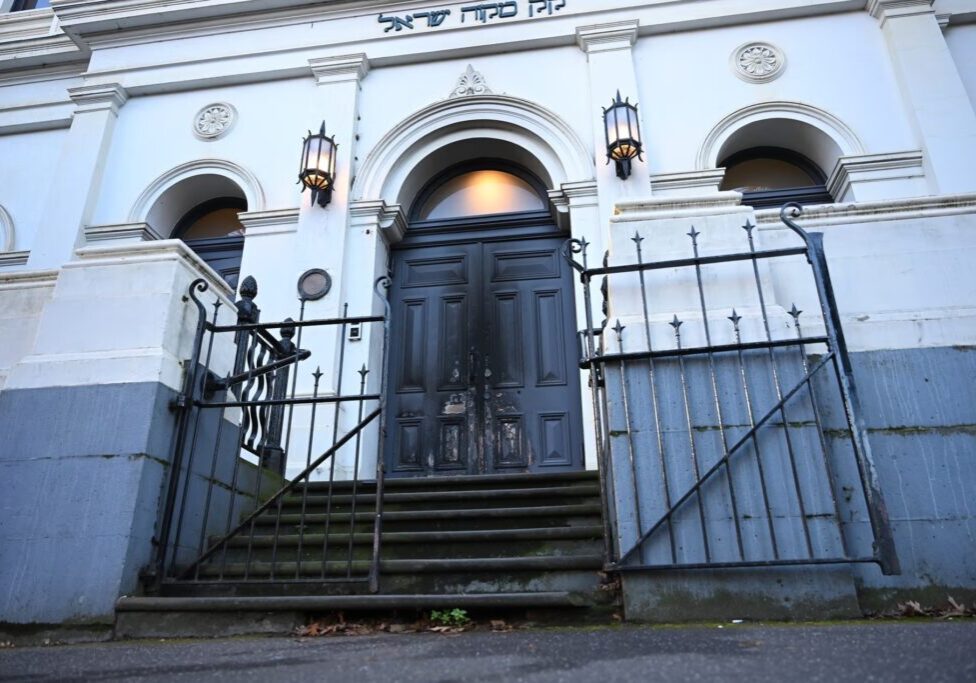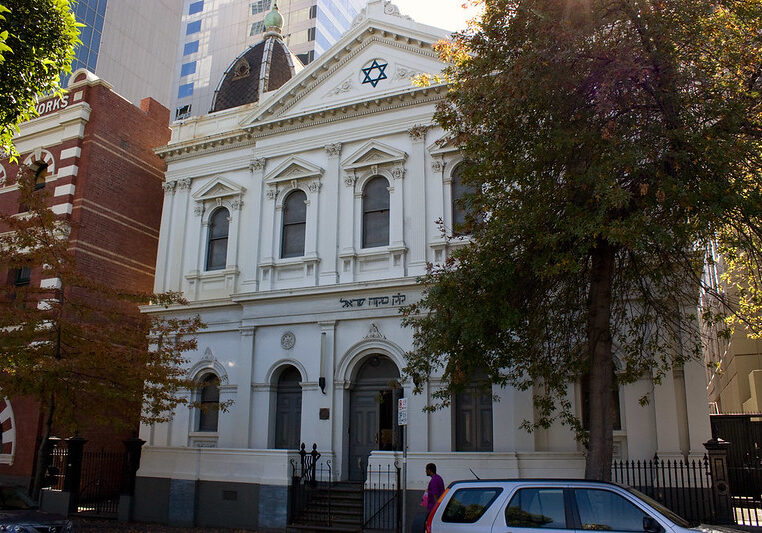Australia/Israel Review
Media Microscope: Eric’s tortured reporting on Gaza
Dec 4, 2019 | Allon Lee

ABC Middle East correspondent Eric Tlozek’s reporting of Israel’s Nov. 12 targeted killing of Palestinian Islamic Jihad (PIJ) commander Baha Abu al-Ata – responsible for most of the rocket attacks on Israel this past year – carried an overpowering sub-text that Israeli political narrow-mindedness is the cause of the violence emanating from Gaza.
It didn’t start out that way.
In a live cross to ABC TV “The World” (Nov. 12), Tlozek noted that PIJ’s “goals are not dissimilar from the earlier goals of Hamas, but the difference is now Hamas, of course, has been trying to gain international legitimacy, and often deals with Israel and accepts financing from groups like Qatar, and negotiates with Israel to maintain a relative calm.”
“It’s interesting, Hamas may look at this and say, ‘well, you know, we actually benefit now because a group… that was breaking the ceasefire we brokered with Israel… a leader of that group has been eliminated’,” Tlozek added.
The next day, however, Tlozek’s narrative shifted.
On ABC Radio “PM” (Nov. 13), Tlozek correctly noted PIJ is a “listed terrorist organisation financed by Iran which conducts attacks against Israel” and differentiated it from the “Islamist group Hamas which controls Gaza”.
But Tlozek’s report ended with Gaza-based writer Muhammad Shehada making the improbable claim that al-Ata’s “replacement will be more radical… and revive militarism and support for violence.”
On ABC TV “News” (Nov. 13), Tlozek explicitly supported this view, saying “one reason Israel abandoned its tactic of assassinating Palestinian militant leaders is because it ultimately led to more violence”, adding that prior to al-Ata’s death, “many people in Gaza wanted a political solution to the miserable situation” in Gaza but “now there are loud calls for a violent retaliation.”
The full flowering of Tlozek’s views were aired on ABC Radio National “Correspondents Report” (Nov. 17), which hammered the point that Israeli political intransigence is the cause of the ongoing violence.
Tlozek implied Hamas and PIJ enjoy support because Palestinians in Gaza have never “had redress for the historical injustices”. He said that to improve their lives Israel needs to end “the economic and military blockade that causes so much misery” and “to recognise and deal openly with Hamas.” Conveniently, Egypt’s enforcement of the blockade went unmentioned.
Even the Palestinian Authority understands the “unpalatable necessity of dealing with Hamas”, he said.
But, “you don’t really hear Israeli politicians talking like that. The two main contenders for government instead compete for who can promise the harshest military incursion. There’s no talk about ending the blockade or securing a real future for Gazans.”
Hamas, Tlozek said, “still formally calls for Israel’s destruction even while its leaders admit that’s an unacceptable and unachievable goal”.
Tlozek’s claims are ludicrous.
To our knowledge, not one Hamas official has ever expressed a willingness “to recognise and deal openly with Israel.” They certainly have never said Israel’s destruction is “an unacceptable” goal.
Moreover, al-Ata’s death on Nov. 12 was hardly preceded by a period of calm.
SBS TV “World News” reported on Nov. 3 on PIJ rockets fired from Gaza into Israel “shattered a month-long lull”. ABC TV did not report this.
Al-Ata was also responsible for a rocket attack on Sept. 10 that forced Israeli PM Netanyahu to abandon an election campaign speech and seek shelter.
Others in the media understood what Tlozek could not or would not.
The Age and Sydney Morning Herald (Nov. 15) ran New York Times correspondent David Halbfinger’s analysis noting that “Hamas, the militant group that runs the Gaza Strip, has been trying for over a year to keep a lid on its conflict with Israel, to improve the abysmal quality of life for the two million Palestinians under its control, and to keep millions of dollars in cash coming in each month from its generous allies in Qatar. But a nettlesome, unruly and heavily armed little group called Palestinian Islamic Jihad has repeatedly sabotaged those plans by firing rockets at Israel.”
If Israel had wanted to make Hamas pay for the hundreds of rockets PIJ fired in mid-November, it would not have adopted a deliberate strategy of avoiding Hamas targets, as it did.
It is stunning that after 14 months as Middle East correspondent, Tlozek appears to still think that Hamas regards destroying Israel as “unacceptable” and that an Israeli leader could make additional concessions on the blockade whilst PIJ rockets are hitting Israeli citizens.
Tags: Australia, Gaza, Hamas, Israel, Media/ Academia






